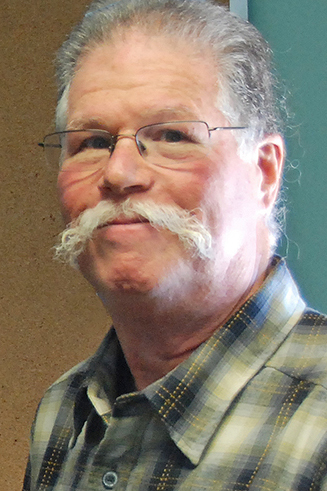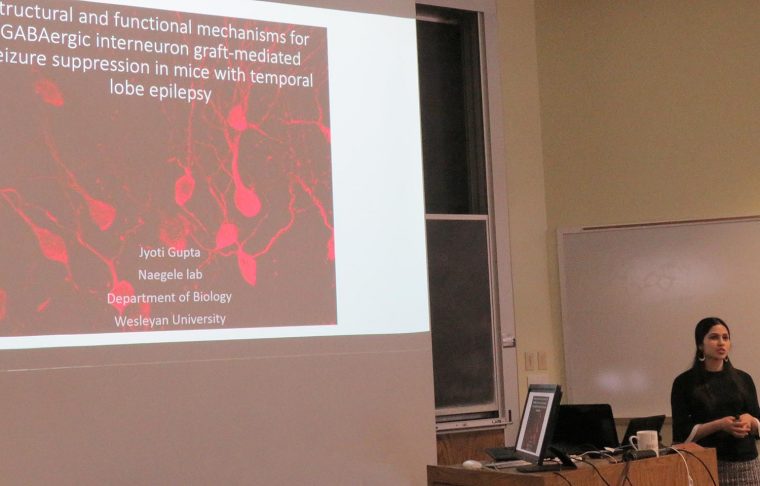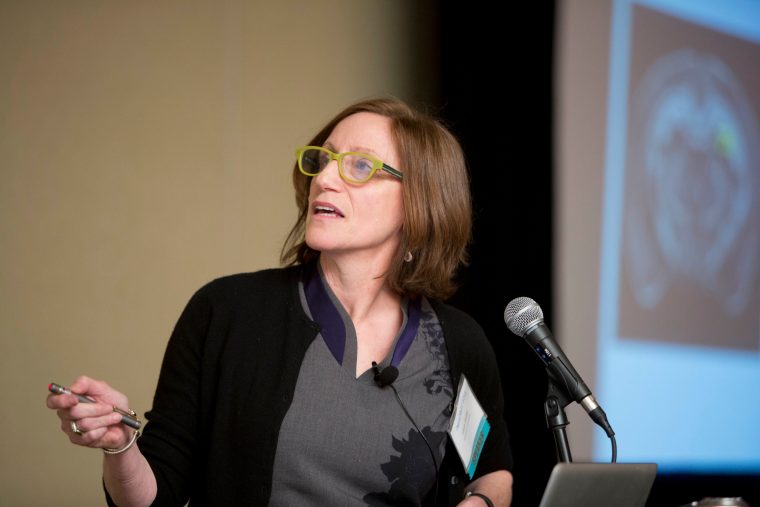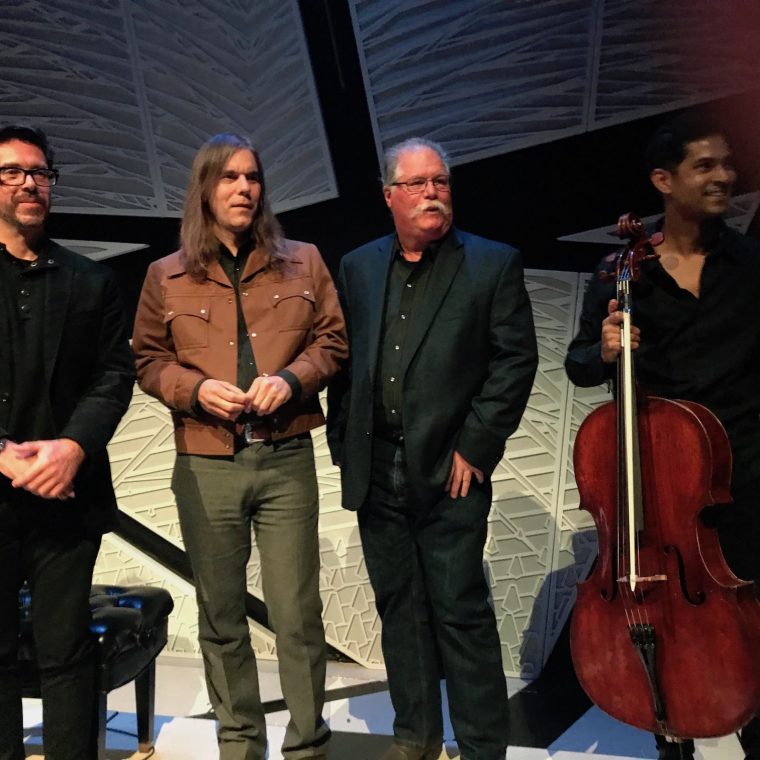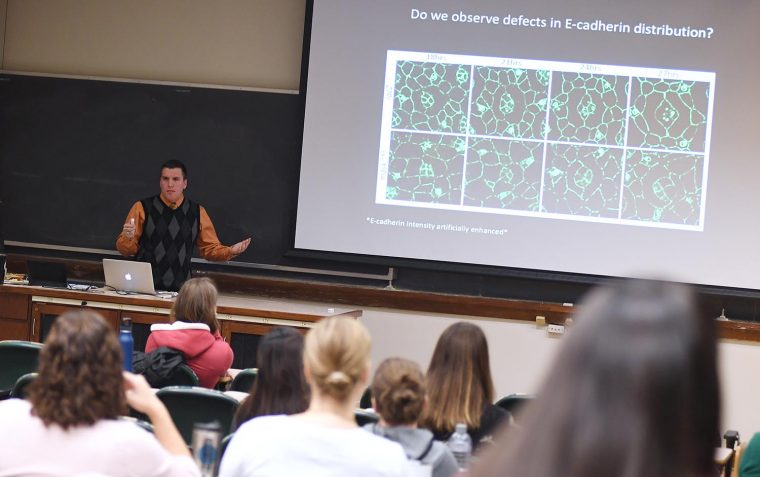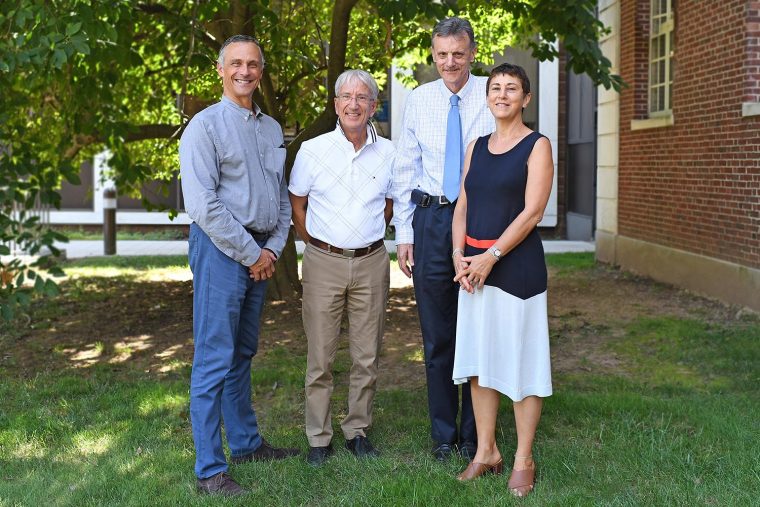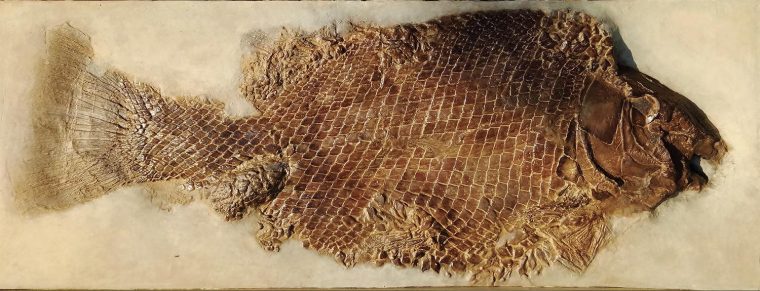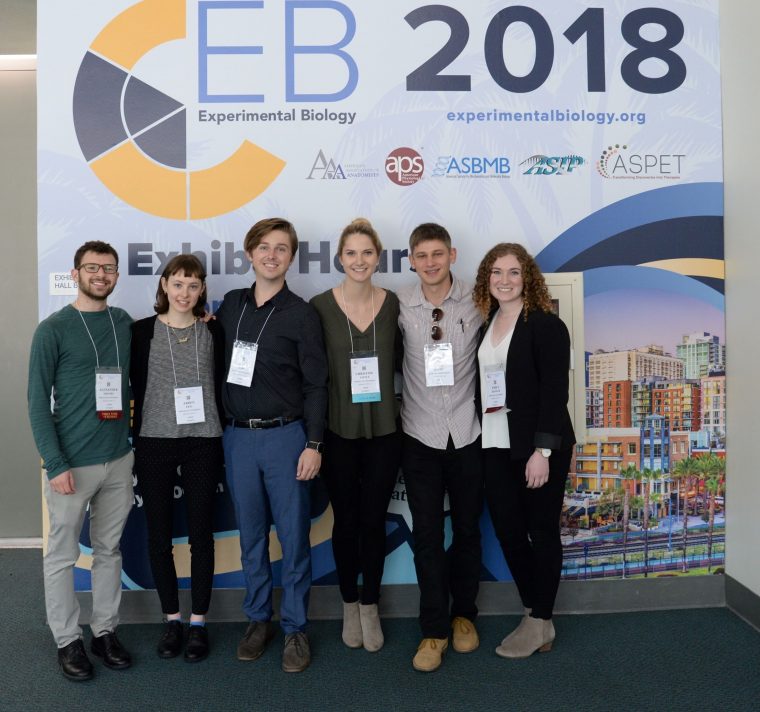A new species of fish discovered in Brazil was recently named in honor of Wesleyan Professor Barry Chernoff. Scientists encountered the Bryconops chernoffi in Rio Ipixuna—a small tributary of the Rio Maicuru, which feeds into the lower Amazon River in Pará, Brazil. Samples of the fish were collected by researchers on four trips in 2014–15, and in March 2019, Zootaxa released an article describing the new species. Chernoff, the Robert Schumann Professor of Environmental Studies, focuses his research on freshwater fishes in North America and the Neotropical region, primarily those in South America in the Amazon. He's also professor of earth and environmental…
Adult neurogenesis, a process whereby new neurons are added to the brain, is thought to be confined in mammals to just a few regions, including the hippocampus, a structure important for learning. Whether this process occurs in the adult human brain is controversial, but in most other mammals that have been studied, adult neurogenesis in the hippocampus appears to be essential for forming memories. Producing new neurons in the adult hippocampus is regulated by the environment, mood, exercise, diet, and disease. In some forms of epilepsy, the production of new cells in the hippocampus, called granule cells, becomes highly abnormal and…
Laura Grabel, the retired Lauren B. Dachs Professor of Science and Society, received an award at the 15th Annual Connecticut Technology Council Women of Innovation® Awards presentation on March 27. The Women of Innovation® program recognizes women innovators, role models, and leaders in science and technology professions, as well as outstanding young women at the high school and collegiate level pursuing technology studies. Of 50 finalists, 11 were recognized as winners in their respective categories; Grabel took the top spot in the Academic Innovation & Leadership (Postsecondary) category. Grabel, who also is a retired professor of biology, is an accomplished scientist…
For her efforts creating and fostering STEM initiatives that support women in science, Laura Grabel, the retired Lauren B. Dachs Professor of Science and Society, was selected as a Women of Innovation finalist by the Connecticut Technology Council in March. She is one of 50 finalists in the state. Grabel, who also is a retired professor of biology, is an accomplished scientist engaged in understanding how the fertilized egg can become a complex organism. This spring, she is teaching Reproduction in the 21st Century. In addition to publishing dozens of academic articles and a book on ethical stem cell research, Grabel fosters…
In this recurring feature in The Wesleyan Connection, we highlight some of the latest news stories about Wesleyan and our alumni. Recent Wesleyan News 1. Los Angeles Times: "As the World Warms, Deadly and Disfiguring Tropical Diseases Are Inching Their Way Toward the U.S." In this op-ed, Professor of Biology Frederick Cohan and Isaac Klimasmith '20, both in the College of the Environment, write that infectious disease is a growing threat, resulting from climate change, that humans may find hard to ignore. Cohan is also professor, environmental studies and professor, integrative sciences. 2. Hartford Courant: "Trump's Immoral Response to Climate Report" Gary Yohe, the…
Barry Chernoff, director of the College of the Environment, was one of eight scientists recently honored with a new musical composition based upon his research—part of a concert and album titled "The Sound of Science, performed in New York City on Nov. 10. The project aims to build "bridges between the musical and scientific worlds, celebrating their shared culture of inquiry," according to the website. The pieces were written by seven celebrated composers for amplified cello and electronics, and were all recorded and performed by world-renowned cellist Jeffrey Zeigler, longtime member of Kronos Quartet and several other groups. The Grammy…
(more…)
Three Wesleyan faculty were honored with the Wesleyan Prize for Excellence in Research on Sept. 4. The inaugural prize, presented by Joyce Jacobsen, provost and senior vice president for academic affairs, is similar to the Binswanger Prize for Excellence in Teaching, but is presented to members of the faculty who demonstrate the highest standards of excellence in their research, scholarship, and contributions to their field. Each recipient received a plaque and citation as well as research funds for their award. Nominations by faculty colleagues for this new prize will be accepted through the end of April each spring, and the…
Sonia Sultan, professor of biology and professor, environmental studies, and her former students Brennan Baker BA/MA '18 and Lars Berg '16 are the coauthors of a paper published in the August 2018 issue of Frontiers in Plant Science. The study, "Context-Dependent Developmental Effects of Parental Shade Versus Sun Are Mediated by DNA Methylation," presents work that Baker completed as a BA/MA student in 2017–18. The article is part of a special Frontiers theme on the emerging area of ecological epigenetics. In this study, the coauthors compared the development of individual plants when their parents were grown in shade or in full…
In 1870, Orange Judd bequeathed Wesleyan $100,000 to build Judd Hall, which was designed as a building for the study of natural sciences. Included with this building was the Wesleyan Museum, which housed a prominent natural history collection containing over 300,000 specimens. In 1957, the museum was closed and specimens were donated to other museums, put into storage in various places on campus, or "temporarily" loaned to local schools. In 1970, before the current museum reopened in Exley, the collection stored in the tunnels under Foss Hill was found to have been severely vandalized, with many specimens lost, stolen, or…
This spring, Sonia Sultan, professor of biology, professor of environmental studies, has delivered several notable invited talks in different parts of the world. In February, she presented the annual Darwin Day talk at the University of Glasgow in Scotland. Sultan was the first woman scientist to present this prestigious lecture, in which a prominent evolutionary biologist shares their research and its broader implications. Sultan spoke on “Eco-Devo Insights to Evolutionary Questions,” using results from her Wesleyan lab’s plant research to address basic questions about individual development, inheritance, and adaptation. She was also interviewed about her contributions to current evolutionary biology for…
Seven Wesleyan students recently were inducted into the American Society for Biochemistry and Molecular Biology (ASBMB) Honor Society, and many of them presented research posters at the ASBMB annual meeting in San Diego, April 21–25. The ASBMB Honor Society recognizes exceptional undergraduate juniors and seniors who are pursuing a degree in the molecular life sciences for their scholarly achievement, research accomplishments, and outreach activities. The Wesleyan students inducted were Will Barr '18, Alexa Strauss '19, Emily Kessler '18, Christine Little '18, Julie McDonald '18, Rubye Peyser '18, and Alexander Shames '18. The following students attended the annual meeting: • Kessler, whose poster was…


